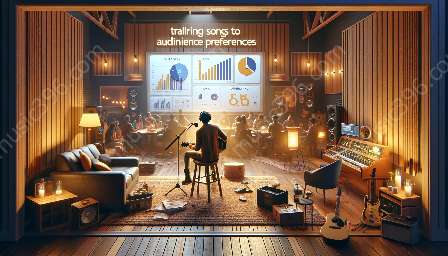Co-writing partnerships are a common practice in the music industry, allowing songwriters to collaborate and create music together. In this article, we will explore the cultural influences in co-writing partnerships, providing valuable insights into the dynamics, challenges, and advantages of working with co-writers from diverse cultural backgrounds.
Cultural Diversity in Co-Writing Partnerships
When songwriters from different cultural backgrounds come together to co-write music, their unique perspectives, traditions, and musical influences can significantly impact the creative process. Cultural diversity in co-writing partnerships often leads to the blending of different musical styles, languages, and storytelling traditions, resulting in a rich and dynamic creative output.
Understanding Cultural Context
Co-writing partners must make an effort to understand each other's cultural context to effectively collaborate. Cultural influences can shape the way songwriters express emotions, construct melodies, and craft lyrics. By gaining a deeper understanding of each other's cultural nuances, co-writers can leverage their diverse backgrounds to create music that resonates with audiences on a global scale.
Challenges and Opportunities
While cultural diversity brings a wealth of creative possibilities to co-writing partnerships, it also presents challenges. Differences in communication styles, musical preferences, and creative processes can lead to misunderstandings and conflicts. However, navigating these challenges can ultimately strengthen the co-writing relationship, leading to a broader range of musical ideas and a more nuanced, inclusive approach to songwriting.
Co-Writing Tips and Techniques
Effective co-writing requires open communication, mutual respect, and a willingness to embrace diversity. Here are some tips and techniques for successful co-writing partnerships:
- Active Listening: Co-writers should actively listen to each other's ideas, respecting and valuing their cultural perspectives and musical contributions.
- Open-Minded Collaboration: Embrace differences and be open to exploring new musical styles and storytelling techniques that reflect diverse cultural influences.
- Clear Communication: Establish clear communication channels to discuss cultural nuances, preferences, and creative decisions openly.
- Research and Learn: Take the time to research and learn about each other's cultural backgrounds, musical traditions, and artistic inspirations to gain a deeper appreciation for diverse influences.
- Mutual Inspiration: Encourage each other to draw inspiration from their cultural heritage, infusing authenticity and depth into the collaborative songwriting process.
Songwriting and Cultural Sensitivity
When co-writing across cultural boundaries, it is essential to approach the process with cultural sensitivity and respect. Songwriters should be mindful of potentially sensitive topics, symbols, and language nuances that may carry different meanings across cultures. By fostering a culture of respect and understanding, co-writing partnerships can navigate cultural complexities and create music that celebrates diversity.
Impact on the Music Industry
The growing embrace of cultural influences in co-writing partnerships is reshaping the music landscape, leading to the creation of eclectic, genre-defying music that reflects the interconnectedness of the global community. As co-writing partnerships continue to bridge cultural gaps, the music industry stands to benefit from a broader range of authentic, impactful music that resonates with diverse audiences worldwide.
In conclusion, cultural influences in co-writing partnerships yield a profound impact on the music industry, enriching the creative process and fostering a deeper sense of global musical interconnectedness. By acknowledging and embracing cultural diversity, co-writing partners can harness a wealth of creative possibilities, ultimately shaping the future of music with their collaborative endeavors.

























